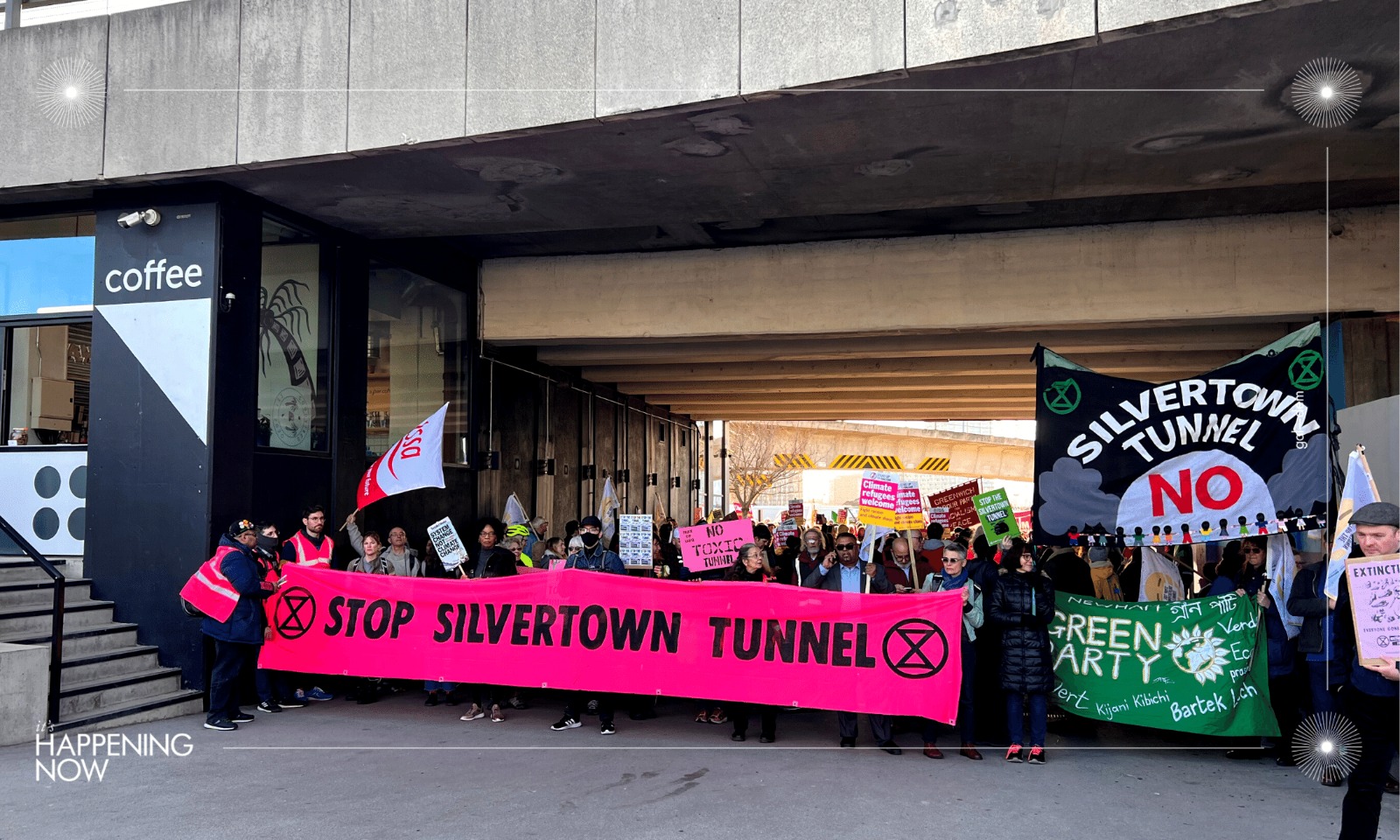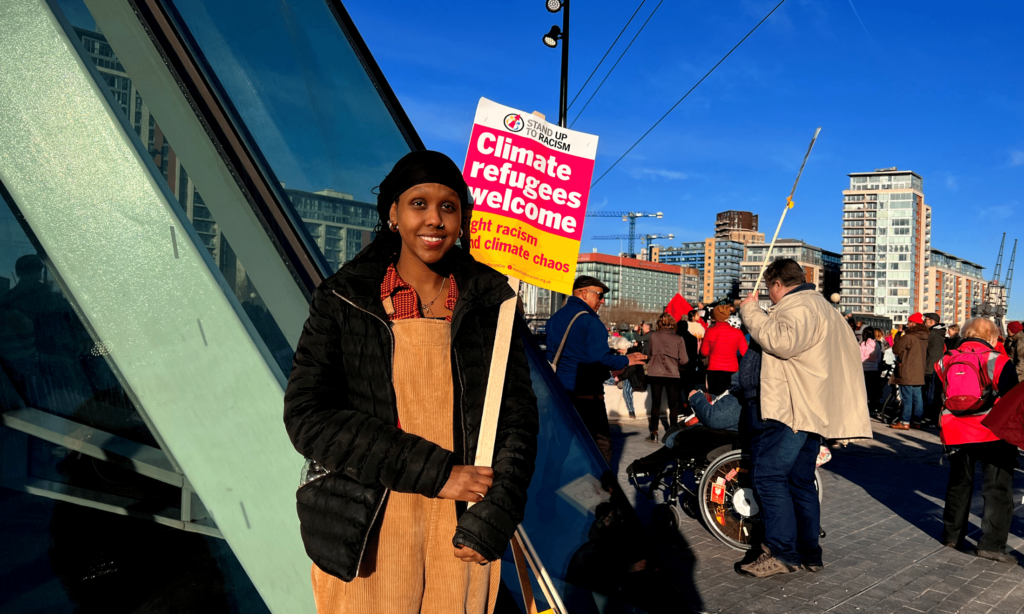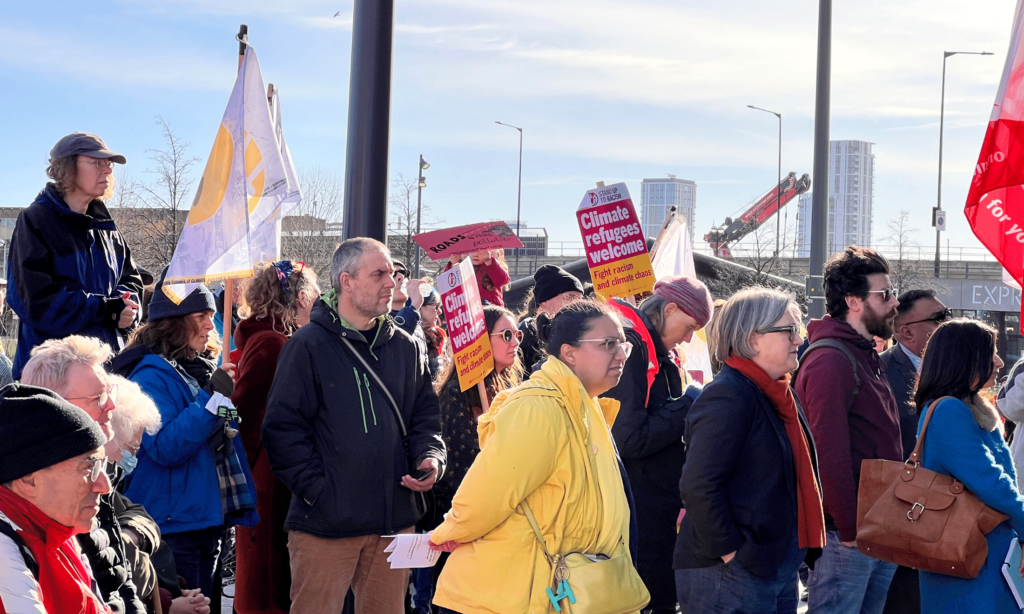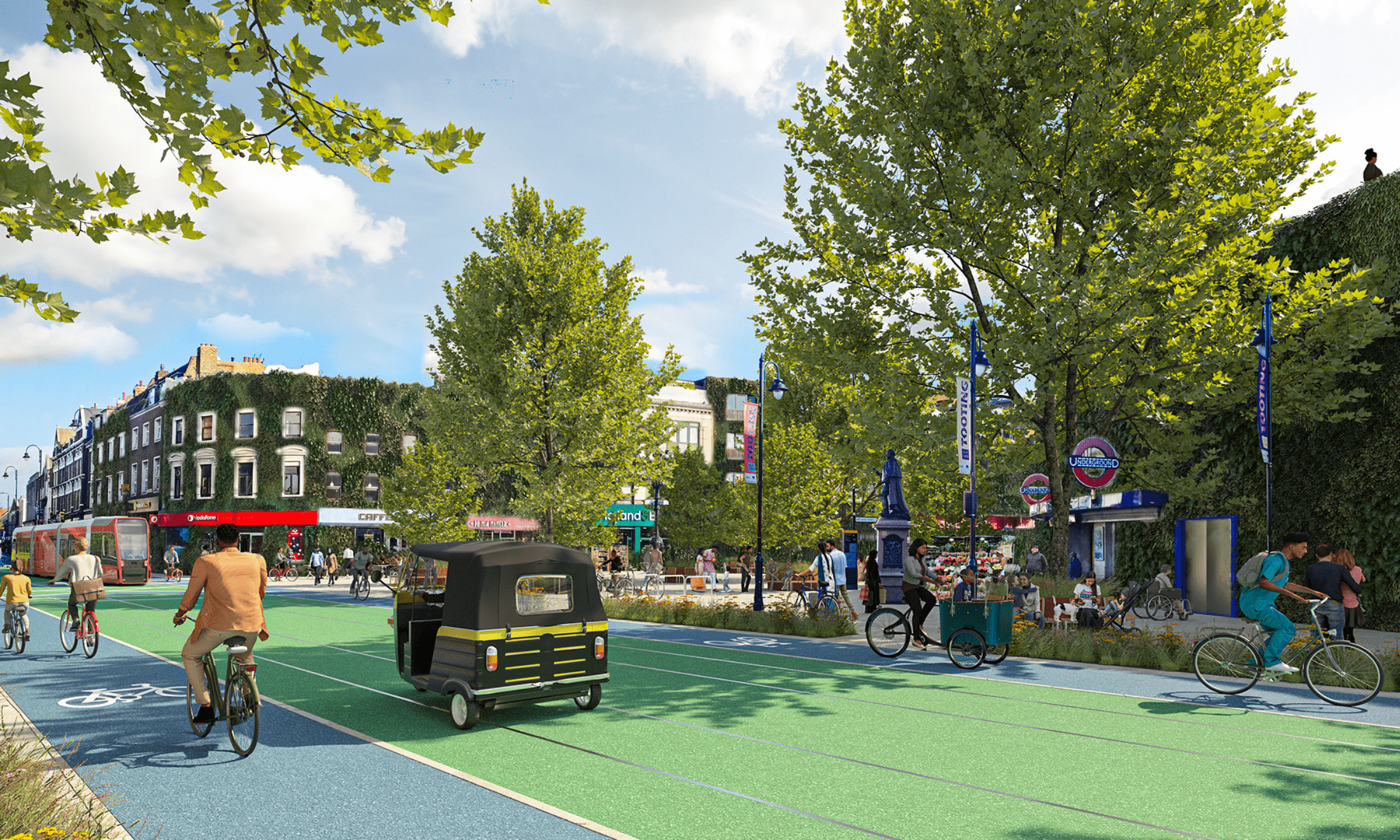
Diyora Shadijanova
‘It’s a money grab’: Newham sees hundreds protest to stop the Silvertown Tunnel
After a week of action, protesters gather outside of Newham’s city hall to try and stop the Silvertown Tunnel in its tracks.
DiyoraShadijanova and Editors
27 Feb 2022
It’s a sunny day on Saturday, 26 February, and only wisps of clouds hang lightly in the bright blue sky. Drums bang on rhythmically in the background, impassioned speeches hosted by the Stop Silvertown Coalition take place one by one, and patient parents try their best to keep children from running havoc amidst the colourful banners laid out on the grass. Numerous groups have also come out to participate in the protest, including the Newham Green Party, the RMT Union and the London Renters’ Union.
Outside of the Crystal Building in Newham, which is also the borough’s city hall, people of all ages and ethnicities gather beside the River Thames to take a stand against the building of the Silvertown Tunnel, a 1.4km four-lane tunnel proposed to go under the river from Greenwich in southeast London to Newham in east London. Building work is due to start this April, but locals across East London are trying their hardest to stop the £2.2 billion project in its tracks.
“Locals across East London are trying their hardest to stop the £2.2 billion project in its tracks”
The infrastructure project regularly referred to as an act of “environmental racism” was initially conceived under Boris Johnson and will commence under Sadiq Khan’s tenure as London mayor. It will have a special lane for highly pollutant HGVs, like lorries and trucks, and will pass through residential areas and schools.

“I think it’s important to be here today because Newham is already one of the most polluted areas in the country and this project will disproportionately affect people of colour,” says 27-year-old Naima Omar, a local resident. Indeed in 2019, Newham was named the most polluted borough in the UK. The council has recorded that residents are exposed to a level of airborne particulate matter 35% greater than World Health Organisation guidelines. As a result, bad air quality kills 96 people every year. With 73% of residents from marginalised communities, people of colour in Newham are bearing the brunt of air pollution.
“Why do we have to build another tunnel? Why can’t we invest in better public transport?”
Naima Omar, Newham resident
“Why do we have to build another tunnel? Why can’t we invest in better public transport?” she continues. “[They could use that money to invest in a] service where people could not only learn how to cycle but also get a free bike. I personally never learned how to cycle because bikes are expensive.”

Daniel Rodrigues, also a Newham resident, has come out to protest on behalf of his seven-year-old daughter with an ongoing lung condition. “I’ve never protested until now,” he says, explaining how much the issue has mobilised the local community politically. “I joined the Green Party, and I’m going to run for the local elections in my area; that’s how deep I’ve been in this. Friends and family are saying this is a waste of time, but I thought why not give it a go and see what happens.” Daniel has one message for Sadiq Khan and everyone else involved in the project: “Just admit it, that you’ve done a mistake. No one is going to go against you. Just say ‘sorry this was a bad idea, I apologise, let’s cancel it’ and we will move on.”
After the first set of speeches, protesters rally around the local area. On their journey, they move through a housing block and temporarily stop traffic on the main roads on the way. Everyone’s spirits are high until one of the protesters gets punched by an angry motorist in a Range Rover who had been shouting at the protesters for blocking his way. The punch is significant and causes the victim’s glasses to break. Before this incident, the driver claimed that he had a dying relative he needed to visit in a hospital – a familiar line previously reported in other instances of climate protesters blocking the road. Someone films a video of the incident and another protester notifies an accompanying police officer. Once the protester recollects themselves after the incident, the march back to the city hall continues. On the way, the second set of speeches is, suitably, made under a tunnel.

“This protest has legs”, says Mel Mullings from the Rail, Maritime and Transport Workers Union (RMT). Though most protesters are local to the area, Mel had travelled from elsewhere in London to show solidarity. “I’m a train driver, and as far as I’m concerned, this money – the billions that will be spent on this – will cause death because of air pollution. We know this because the existing infrastructure is already causing death. And it’s about to get worse.”
The tunnel requires materials that would release at least 82,077 tonnes of CO2, locking in fossil fuel use and high pollution levels in the area. Plus, at least 100 trees will be felled to make space for the project. If the project goes ahead, it will render the achievement of London’s climate change targets under the Paris Agreement impossible. “In 10 years’ time, they’ll say we didn’t have that information. We do. We don’t need to build more roads, we need to invest in the transport already available,” she continues.
“If the project goes ahead, it will render the achievement of London’s climate change targets under the Paris Agreement impossible”
Mel seems to be especially concerned about the broader implications of the tunnel on the UK government’s climate plan. “I want us to stop it, but I also [want us] to admit that climate justice is not the agenda of the government. It’s about money; it’s a money grab,” she concludes.
The day ends with final speeches, cheers and an inspired performance from a local theatre group. Yet the Stop Silvertown Coalition isn’t packing up any time soon – organisers have promised more actions to follow next month with an organising meeting happening on Zoom at 7pm on Tuesday, 1 March.
For more information, follow the Stop Silvertown Coalition on Twitter and check regular updates on their website.
Like what you’re reading? Our groundbreaking journalism relies on the crucial support of a community of gal-dem members. We would not be able to continue to hold truth to power in this industry without them, and you can support us from £5 per month – less than a weekly coffee.
Our members get exclusive access to events, discounts from independent brands, newsletters from our editors, quarterly gifts, print magazines, and so much more!






